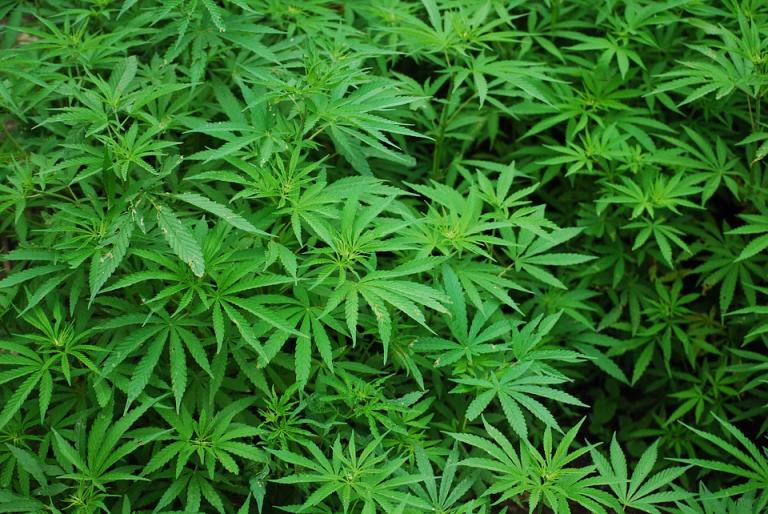
I wrote on twitter yesterday,
The funny thing is, I have no strong opinion on what Congress should do about pot, but, whatever they do, it shouldn’t be to keep a law on the books that they themselves wish to be unenforced.
And thought it would be useful to expand on this here, in light of the news last week that under Attorney General Jeff Sessions,
the Justice Department chief withdrew federal guidelines that effectively limited prosecutions of businesses and individuals who sold pot in a legal manner under state law, even though the drug remains illegal under federal law.
I came across a “lawsplainer” from the blogger Popehat which humorously explained what’s going on. There were two components to federal government actions in the wake of state legalizations of marijuana: the Obama administration issued various memoranda which declared that the justice department would not enforce federal law when it came to marijuana in states where state law permitted its use; and, separately,
In 2014, in the Rohrabacher-Farr amendment to an appropriations bill, Congress prohibited the Department of Justice from using federal money to “prevent” states from implementing laws making medical use of marijuana legal. Courts have found that this amendment may prohibit federal prosecutions for medical marijuana activities that are legal under state law.
Since then, Rohrbacher-Farr has been included in each appropriations bill and continuing resolution.
What Sessions has done is rescind the Obama administration memos; since Rohrbacher-Farr is a part of legislation, he can’t do anything about that.
So, back to my tweet yesterday: I have no strong opinion on whether pot should be legal.
My gut reaction is that it should not be: the government certainly has the right to criminalize the use or production or importation of such substances, and I think it’s harmful for our society to have a substantial portion of the population using mind-altering drugs. Polling in 2016 reported that pot usage has increased substantially even in just the last three years, from 7% to 13%. If we saw that impact with legalization only in two states (though near-legalization via “medical marijuana” with easy access and compliant doctors in others), we really don’t know what the end result will be with wide-scale legalization. Supporters want to put out the image of pot users as just a bunch of nice middle-class people relaxing at night after the children have been put to bed, no different than others having a drink, and they even float the idea that, just like cigarette smokers switching to vaping, widespread pot usage will be a form of harm reduction, as alcoholics switch, or individuals who would otherwise be on the path to alcoholism take up pot-smoking instead, and are less likely to be violent, or drive while impaired, or have their overall health damaged. But that simply doesn’t seem credible to me — consider, for instance, studies that have indeed now documented that pot users have less success in college. And so far as I know, we don’t know what the long-term effects of pot use becoming mainstream would be on family life, for instance; I recall reading an article a couple years ago by a dad defending his getting high at night, because it made him more willing to get down on the floor and play with his preschool son, and thinking, what happens when that preschool son hits grade school, or middle or high school, and wants transportation to afterschool activities, and needs homework supervision, or the active work of being a parent rather than a playmate?
At the same time, I am also sympathetic to arguments that this is something that requires social sanction, not legislation. It is, after all, equally possible to spend one’s evenings getting drunk, or playing video games, and thus fail at all the things that are a part of being a responsible adult or a parent, and it is a combination of social sanction and individual recognition that these actions are mistakes, that keeps society functioning. And pot can be reasonably distinguished from opiates in terms of addictiveness; the latter produces a chemical dependency that is different than the behavioral issue of excessive pot use (though I am not an expert on the subject). We shouldn’t expect our legislation to do all the heavy lifting of telling the members of our society when something is wrong, and shouldn’t be dependent on the criminalization of an activity to communicate this.
And, finally, the principle of federalism is fundamentally a matter of saying that each state is different and should be able to make their own policy about what’s criminal and what isn’t. Hence, for it to be appropriate for pot to be criminalized at the state level does not necessarily mean that it should be criminalized by the federal government.
All of which means that I’m OK with other people who have stronger opinions making this decision.
But I’m not OK with the status quo in which, near as I can tell, a significant number of Congressmen are perfectly happy to have individual states legalize pot, but are not willing to take the action of introducing legislation removing the federal law on the matter.
According to Politico, all manner of Congressmen are railing about how upset they are that the administration would even consider enforcing federal law. But are they actively promoting the Ending Federal Marijuana Prohibition Act? It has 15 co-sponsors, but California Democrat Barbara Lee, who the Politico article cites as saying, “In our district, we’re going to fight this every step of the way,” is not on the list. The Senate equivalent, the Marijuana Justice Act of 2017, introduced by Sen. Cory Booker, has 1 co-sponsor. None of Cory Gardner of Colorado, Jeanne Shaheen of New Hampshire, or Pat Leahy of Vermont, all quoted in the Politico article as being furious at the administration, have added their names to the Senate bill nor taken any actions to promote its passage.
And that is what angers me. For a president to do as much in his power as possible to accomplish his goals, when the legislature opposes those goals — well, that’s pretty much just how things work. For congressmen and senators to make demands that the administration refuse to enforce a law, but take no steps to actually change that law is fundamentally a sign of a failing, incompetent, corrupt government.
Bring those bills up for a vote. Put everyone on record. And hold them responsible for the outcome.
Image from pixabay.com; https://pixabay.com/en/foliage-cannabis-marijuana-lush-1157792/









